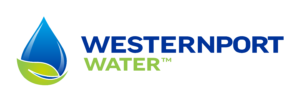Helpful Tips
Keeping Our Sewers Clean and Environment Healthy
It is easy to neglect the impact of what you pour down the sink or flush away in the toilet as it disappears out of sight and out of mind. However, certain household substances DO have an effect on both the sewer system and, potentially, the environment. If the incorrect substances or items are introduced to the sewers they can not only make the treatment process more difficult and costly, by blocking or corroding the sewerage system.
You can help keep our sewers clean and our environment healthy by being conscious of what you put into the sewer system and being mindful to keep certain items out. Overall, non-biodegradable products such as metal objects, plastic bags, chemicals and oils cannot be broken down as part of the sewerage treatment process, and therefore should not be introduced into the sewer system.
Things to be mindful of:
- Never flush nappies, sanitary napkins, tampons, surgical bandages, cotton buds or plastic material down the toilet. These items can cause sewer blockages and can clog up the system at the treatment plants.
- Never flush razor blades, syringes or other non-biodegradable pharmaceutical products down the toilet. Always dispose of these products safely in a bin.
- Instead of pouring fats and oils down the sink, wipe your pots and pans with a paper towel once they have cooled and put the paper towel in the garbage bin. You can also let the oil or fat cool and then spread it evenly over your compost heap.
- Vegetable peelings and other scraps should be placed in the bin or on the compost.
- Before rinsing your fruit and vegetables in the sink, make sure you remove the brand labels and dispose of them in the rubbish bin. These small, sticky labels are not biodegradable and cannot be treated by the bacteria that break down sewage.
- Reduce the amount of detergent you use. Do not automatically use the manufacturer’s recommended dosage as you may be able to use less detergent if your clothes or dishes are not heavily soiled. You will reduce the impact of detergents on the environment and save money too.
- Choose detergents that are phosphate-free.
Paints, pesticides and other hazardous chemicals
Hazardous chemicals used for home and garden maintenance, such as paints and pesticides, can be particularly harmful to the sewers system and the environment. These chemicals also pose a health threat to staff who maintain our sewers.
- Water-based paints are much less harmful to the environment. After using water-based paints, use scrap material to get out any excess paint on brushes and rollers, or rinse them over the garden.
- If you are using oil-based paints, clean brushes and rollers in turpentine and allow the paint/turps mixture to evaporate. Put the remaining sludge in the bin.
- Never pour used motor oil down the sink. Contact your local council or Sustainability Victoria to find a way to dispose of used motor oil.
- Never dispose of unwanted fuels, paint thinners or other volatile chemicals in the sewerage system as they can generate poisonous and explosive gases.
